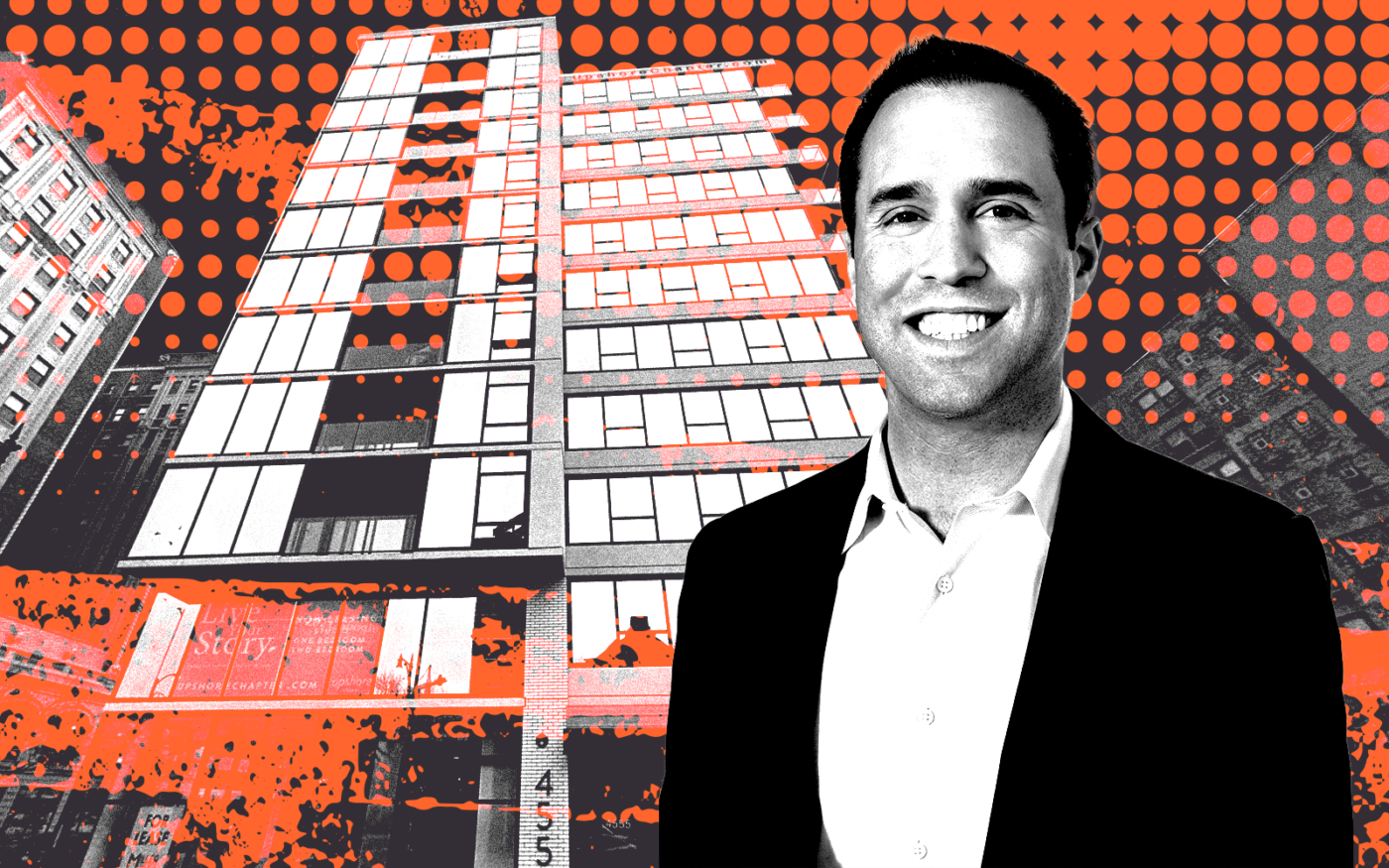A Chicago apartment complex could be headed to foreclosure after the owners fell behind on debt payments and tried but failed to sell it ahead of the maturity date on its $39 million loan.
CRG, a Chicago-based real estate developer, built the 149-unit Uptown highrise called Upshore Chapter, at 4555 North Sheridan Road, for $30.7 million or a little more than $200,000 per unit, according to its website.
The firm started construction in June 2018 with its sister companies, Lamar Johnson Collaborative and Clayco and completed it in 2019.
The building features a 2,000-square-foot rooftop deck, a gym, business center and dog salon. The 12-story property consists of mostly one-bedroom apartments and also has 5,300 square feet of commercial retail space.
The firm refinanced the property with a securitized loan 2021.
Last summer, CRG hired CBRE’s Chicago multifamily team to market 4555 North Sheridan Road but did not find a buyer. The property is no longer listed on CBRE’s website.
About a year later, CRG’s lender watchlisted the loan and then moved it to special servicing with Situs Holdings in August. Payments on the loan have been delinquent since then, and the loan matured this month, according to CMBS loan tracking system MorningStar Credit.
A representative of CRG declined to comment.
Floating rate debt could have played a role in the loan’s troubles. Interest rates were significantly lower when the loan was originated in 2021 than they are today.
Floating rate debt has caused problems for numerous multifamily players in the Chicago area since rates began to tick up.
More than a dozen major multifamily properties with floating rate loans in Chicagoland are burning more cash than they are bringing in, data from Morningstar Credit shows.
Although the federal reserve announced rate cuts in September, for properties like Upshore Chapter, the relief may have been too little, too late.
Chicago has seen an uptick in multifamily transactions driven by investors intrigued by Chicago’s strong rent growth last year.
But deals so far have had mixed results for sellers. And an emerging urban-suburban divide is creating different outcomes based on location.
Although supply in the broader region has been hampered by high debt and construction costs, the city’s downtown market has dealt with the added challenge of investors perceiving Cook County’s property tax environment as overly complicated and unpredictable.
That contrast in attitudes toward the suburbs and the city has been noticeable in some recent sales.
This month, JLL Income Property Trust sold its 28-story West Loop apartment building at 180 North Jefferson Street for $76.3 million. The price was 20 percent less than the $96.4 million it paid for the building in 2016. The 274-unit building sold for $278,000 per unit.
Meanwhile, RentCafe recently ranked suburban Chicago and Miami as the No. 1 multifamily markets in the country.
Read more



But it hasn’t been all bad news for the urban core and specifically for Uptown.
This week, the Chicago Plan Commission approved an unidentified developer’s proposal to replace a vacant mid-block parcel at 936 West Leland Avenue with a five-story, 32-unit apartment building. The development cost for that building comes to $297,000 per unit.
